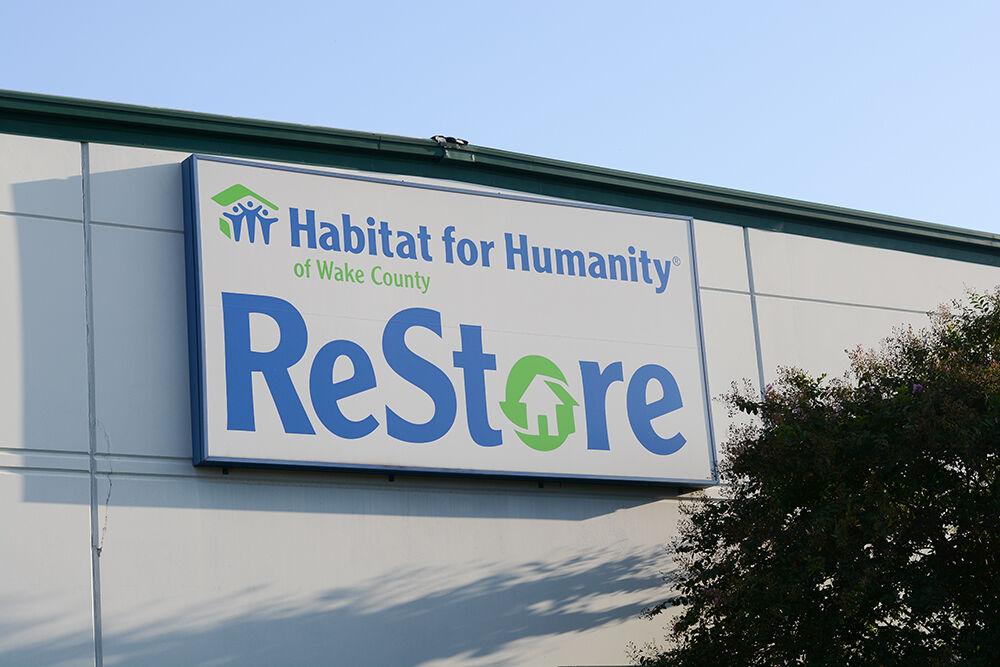
Marissa McHugh
An exterior shot of the Habitat for Humanity of Wake County ReStore on Tuesday, Oct. 14th, 2020.
Many voters tend to understand the importance of the national and local elections in their everyday lives. One thing that tends to be overlooked, however, is the national and local elections’ impact on local organizations.
Organizations like the LGBT Center of Raleigh and Habitat for Humanity of Wake County and a variety of other institutions could be impacted from the elections through their funding, clients, mission and more, due to the political interests and leanings that surround them.
Holly Gallagher, advocacy coordinator for Habitat for Humanity of Wake County, said part of her job is advocating for local, state and federal policies that will increase access to affordable housing opportunities, a major topic of political debate in Raleigh.
Gallagher said offices that many people don’t pay attention to, like county commissioners, can have major impacts on housing affordability and therefore, her organization.
“Making sure people know first and foremost who is on their ballot and how that ties into housing in particular, because that is our issue at Habitat Wake, is really important to us,” Gallagher said. “The Affordable Housing Bond is a great example of a local policy that is going to have a major impact on housing affordability in Raleigh.”
Furthermore, Gallagher said some of these local public office positions have an impact on local organizations, especially nonprofits, and how they receive funding. According to Gallagher, some of these offices have the ability to give Community Development Block Grants to community-serving nonprofit organizations, like Habitat for Humanity of Wake County.
Kori Hennessey, director of education and programs at the LGBT Center of Raleigh, said to be mindful that policies implemented at the national level do trickle down to the local level. They said the LGBT Center’s primary goal is to create a sense of community for people who have historically been seen as less than.
Hennessey said policies implemented by local, state and federal politicians can contribute to this feeling of otherness and makes the center’s role even more necessary, despite the challenges. Hennessey said voters should be mindful of the Supreme Court nomination because the decisions handed down by the Supreme Court could drastically affect the lives and livelihoods of the people that the LGBT Center of Raleigh serves.
“The president is not the only person that makes the rules or makes the laws,” Hennessey said. “Be very understanding that, depending on how the election goes, we potentially could be losing a lot more of the rights that we’ve been fighting for for decades.”
Gallagher encourages anyone eligible to vote to do so because she believes voting is an essential part of advocating for your own personal beliefs and values.
“Voting is, at its most simple form, a form of advocacy because you’re choosing who to put into office based on issues that matter to you, whatever they may be,” Gallagher said. “I think voting is incredibly important, and I hope we see increased voter turnout across the country because it is a form of advocacy in itself.”
Hennessey wants to remind everyone who is worried about the impact of the election that these organizations are going to do whatever they possibly can to help the communities that they serve, regardless of the results.
“We’re going to be here for you, no matter what happens,” Hennessey said. “We’re going to do our best to be that support.”